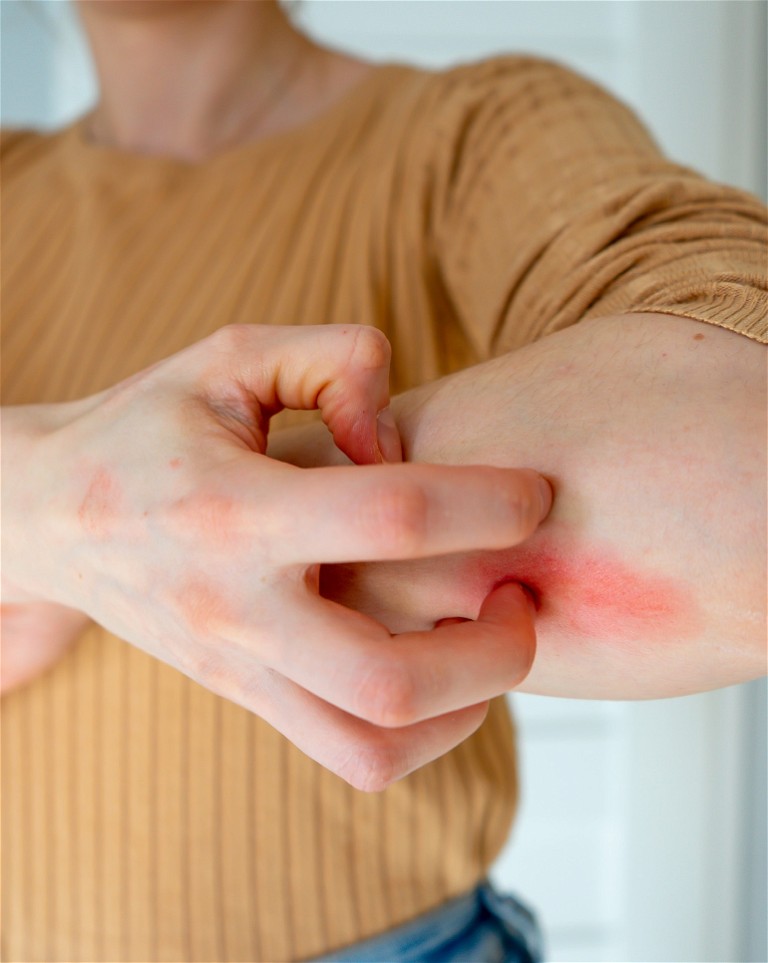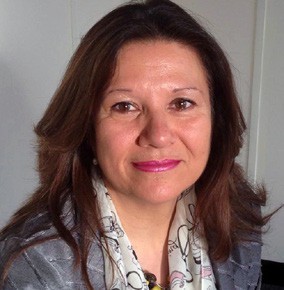EXCLUSIVE INTERVIEW
Scratching the surface of eczema care in the UK
Pharmafile speaks to Allergy UK
In light of a recent report by Allergy UK about treatments for eczema patients, we spoke to Head of Clinical Services, Amena Warner, about the future of diagnosis, treatment, and support for this prevalent condition

Pharmafile: In the new Allergy UK report, you reported 30 out of 30 healthcare professionals felt there was not adequate mental health support provided for patients with eczema – what measures do you believe are needed to combat this?
Amena Warner: There is a need for more awareness of the very significant impact on quality of life, mental health and a person’s lived experience that living with eczema can bring. We believe that psychodermatology services should be commissioned and made more widely available within the new integrated care system/primary care network infrastructure, and attached to secondary/ tertiary dermatology/allergy services to address this need. There are support groups and organisations that can also help, such as Allergy UK, and there is a need for healthcare professionals to direct patients to these sources for ongoing support.
Waiting times for diagnosis, and access to effective treatments, are often lengthy (sometimes even over a year) for eczema patients. How can the healthcare system effectively respond to this statistic?
Prioritisation within the healthcare infrastructure of eczema as a disease area that can be treated and managed effectively, if a correct and timely diagnosis is made with accurate assessment, is key. There is a need for early interventional services and investment into this area. Service provision needs to be addressed and increased to bring down long waiting times.
How does Allergy UK support those living with eczema?
We are the leading patient support and information charity for people living with all kinds of allergies. We have a helpline and webchat with a response team supported by our own clinical team. Our website is also a source of free information, factsheets and leaflets to help support people living with allergic conditions. At the same time, we run masterclasses, and produce videos and podcasts aimed at healthcare professionals on all aspects of allergy, including eczema.
Our work is focused on improving the lives of people impacted by allergic conditions.
What are some of the greatest challenges experienced by people living with eczema, and how have these been exacerbated by COVID-19?
Eczema is a very visual skin condition which can flare and can become very problematic at the most inconvenient times. People often say the itch is the worst aspect, and this often leads to sleepless nights, infection, and scarring of the skin. The huge impact this can have on the individual should not be underestimated, and this is backed up with data from many research studies, as well as what we hear on our helpline. Imagine this on a regular or daily basis and you can begin to understand why so many people affected have difficulty with work/school, with relationships, with concentration, with social situations, etc. Getting an accurate and timely diagnosis can be a challenge for many; as can gaining treatment to control and manage their condition without giving them serious long-term side effects. While COVID-19 has been unkind to everyone, having a condition like eczema can be isolating in itself, causing psychological, as well as physical, distress. The changes in our daily lives caused by COVID-19 are inevitably going to exacerbate those issues. Online consultations are challenging because they do not give a full picture of the condition, and many people are reluctant or embarrassed to expose the full extent of how eczema affects them.

What guidelines would you like to see implemented for better patient outcomes?
We would like to see the prioritisation of the development of NICE guidelines for children, young people, and adults. Also, creating patient pathways for people affected by atopic eczema, with a standardised approach to diagnosis, treatment and management of eczema across the whole of the UK in order to put the patient at the heart of the decisionmaking process for best practice care.
What are your hopes and visions for the future of eczema care and support?
That best practice care, treatment and support be received by those who need it. No one with eczema should feel alone with their condition and the impact it has on their lives. Finally, of course, that a cure will mean that eczema will be eradicated as a health condition.

Amena Warner is Head of Clinical Services at Allergy UK, a national charity that works to raise awareness of allergic disease both nationally and internationally. She took up this appointment after working as a Clinical Nurse Specialist in Immunology and Allergy at an NHS Hospital Trust. She trained at University College Hospital, followed by paediatric training at Great Ormond Street Hospital in London. She also holds a Public Health and Specialist Practice in School Nursing qualification gained in 1994. Visiting schools and carrying out health assessments made Amena very aware of the rising incidence of allergy in the UK and was instrumental in developing her interest in the field.